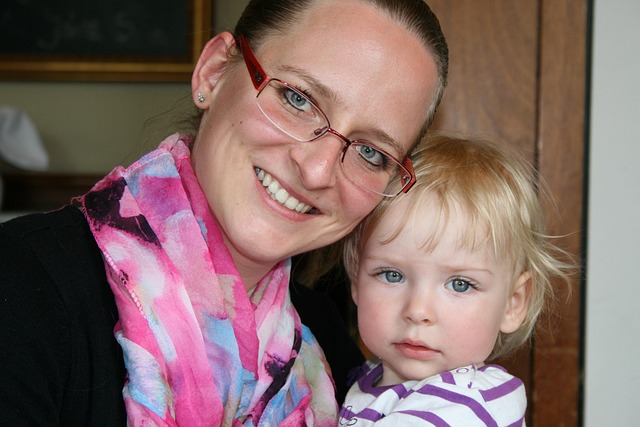In Oregon, the Department of Human Services (DHS) plays a central role in child welfare proceedings under Oregon family law, focusing on children's safety and well-being. Families involved with DHS must understand the process, potential outcomes (voluntary placement, emergency removal, or services), and their specific rights, including legal representation and case access. Navigating timelines, court appearances, and resources is crucial. DHS collaborates with families to plan for safe reunification. Expert guidance in Oregon family law proceedings ensures fairness, advocates for children's best interests, and preserves family relationships. Clear communication between attorneys and agencies is key, facilitating efficient resolution. Skilled attorneys specializing in DHS child welfare proceedings secure favorable outcomes, protecting children's rights and family integrity within Oregon's legal framework.
In Oregon, the Department of Human Services (DHS) plays a pivotal role in child welfare proceedings, often impacting families profoundly. This article guides Oregon residents through the intricate web of DHS child welfare processes, emphasizing the crucial role experts play in navigating these complex legal territories. We explore children’s and parents’ rights, best communication practices with agencies, and real-life success stories showcasing how expert intervention can transform outcomes in Oregon family law cases.
- Understanding DHS Child Welfare Proceedings: An Overview for Oregon Families
- The Role of an Expert in Navigating Complex Legal Terrain
- Unraveling the Rights of Children and Parents During DHS Involvement
- Best Practices for Effective Communication with Child Welfare Agencies
- Success Stories: How Expertise Makes a Difference in Oregon Family Law Cases
Understanding DHS Child Welfare Proceedings: An Overview for Oregon Families

In Oregon, the Department of Human Services (DHS) plays a pivotal role in child welfare proceedings, ensuring the safety and well-being of children. These proceedings are governed by Oregon family law, which outlines the rights and responsibilities of all involved parties. When DHS becomes involved, it’s crucial for families to comprehend the process to protect their rights and make informed decisions. The initial step often involves a report of suspected child abuse or neglect, leading to an investigation that can result in various outcomes, including voluntary placement, emergency removal, or services to support the family.
Throughout these proceedings, Oregon families have specific rights, such as the right to legal representation, access to case information, and participation in decision-making processes. Understanding the timeline, potential court appearances, and available resources is essential. DHS works collaboratively with families to develop plans aimed at reunifying children with their parents or guardians when it’s safe to do so. This overview aims to provide a basic understanding of DHS child welfare proceedings, empowering Oregon families to navigate these complex legal processes with confidence and assertiveness.
The Role of an Expert in Navigating Complex Legal Terrain

An expert in DHS (Department of Human Services) child welfare proceedings plays a pivotal role in navigating the complex legal terrain surrounding Oregon family law. They are trained to understand and interpret the intricate web of laws, regulations, and policies that govern child protection cases. With their deep knowledge, they can guide all involved parties – from parents and guardians to caseworkers and judges – through this challenging process.
These experts possess a keen awareness of the specific rights and protections afforded to children and families under Oregon law. They help ensure that proceedings are conducted fairly and in the best interests of the child, while also advocating for the preservation of family relationships whenever possible. Their insights enable everyone involved to make informed decisions, ultimately leading to more positive outcomes for vulnerable children and their families.
Unraveling the Rights of Children and Parents During DHS Involvement

In Oregon family law, understanding the rights of children and parents during Department of Human Services (DHS) involvement is paramount. When DHS becomes engaged in a case due to concerns about a child’s welfare, both the child and their parents have specific entitlements that must be protected. This includes the right to legal counsel, ensuring fair and transparent proceedings, and being informed about all available options and outcomes.
Unraveling these rights is crucial as it allows families to navigate complex DHS child welfare proceedings with confidence and understanding. Parents are entitled to participate actively in decisions affecting their children, while also safeguarding against any potential violations of their own rights. Effective communication and advocacy are key to ensuring a just process for all involved, fostering an environment where the best interests of the child remain at the forefront.
Best Practices for Effective Communication with Child Welfare Agencies

When navigating Oregon family law and child welfare proceedings, clear and consistent communication between attorneys and agencies is paramount. Establishing a dedicated line of contact ensures regular updates and facilitates a collaborative environment. This approach, rooted in open dialogue, allows for a deeper understanding of each case’s nuances and fosters timely resolution.
Best practices include providing detailed case summaries, offering readily accessible resources, and maintaining responsive communication channels. Regular meetings or phone conferences can help address concerns promptly and ensure everyone is aligned. By prioritizing effective communication, legal professionals can navigate complex Oregon family law matters with efficiency and sensitivity, ultimately advocating for the best interests of the child.
Success Stories: How Expertise Makes a Difference in Oregon Family Law Cases

In Oregon family law cases, especially those involving DHS child welfare proceedings, expertise can be a game-changer. Attorneys and advocates with a deep understanding of these complex legal areas can navigate the intricate tapestry of laws, regulations, and case precedents to ensure the best possible outcomes for their clients. This expertise is particularly crucial when advocating for the rights of children and families facing potential separation or termination of parental rights.
Success stories in Oregon family law often highlight the impact of skilled representation. An expert in DHS child welfare proceedings can identify strategic opportunities, challenge unfair practices, and secure favorable resolutions. By promptly addressing concerns, presenting compelling arguments, and considering alternative solutions, these professionals help foster a more just and equitable system. This expertise ultimately safeguards the interests of vulnerable children while supporting families through challenging times.






